Social Skills for Autistic Adolescents and Teens
Today we’re discussing how to teach conversation and social skills to older children who are struggling. This may include children with autism or other social impairments.
Social Skill Therapy for Autistic Adolescent and Teens:
How to Decide Which Social Skills to Address:
- Who are these kids
- autism
- social interaction problems
- want to have friends
- don’t understand rules
- How to know which social skills to work on?
- Observe in natural setting as much as possible
- Ask teachers or other caregivers about what they’ve noticed
- Observe other children that age
- Research about how these kids learn social skills best
- Review of research by White and Keonig
- group-based social skills training
- Direct teaching of social skills
Social Communication Skills to Teach to Autistic Adolescents and Teens
- Teaching Social Scripts
- Specific rules that govern these activities
- watch other kids
- introductions, entering conversation, sitting in the lunch room, phone conversations,
- Modeling and Role Play
- watch someone else do it first
- practice skill on their own
- Differential reinforcement
- change reinforcement based on their behavior
- could be verbal praise or corrective feedback or the reaction of the listener
- Peer Involvement
- use other children with social needs
- use typical peers
- use siblings
- Multiple Trainers
- Don’t get too used to the same communication partners
- Parent Involvement
- Practice skills or talk about them at home
- Practice in natural environments
- Use peers to help with re-introducing the skill into a natural setting
- Talk about before the child enters the situation
- Review how it went afterwards
- Foster Self-Awareness
- Watch videos of self doing skill
- Talk about how it went
- Encourage child to judge if it went well
- Encourage child to judge based on other person’s reaction
How to Do Speech Therapy for Autistic Adolescents and Teens:
1. Choose children who need social skills training, group together and add peers if possible
or
Tell child you’ll be working on social skills, bring in peers, friends, other children with autism, siblings if possible
2. Observe natural social interactions to choose one target: entering a group conversation
3. Observe typical kids in that situation
- if body language is closed off, don’t enter
- stand quietly by to see if they let you in
- watch body language to see if they’re ok with you being there
- listen for topic
- make comment that is relevant and on-topic
- don’t change topic away
- don’t hog spotlight, ask others questions and let others take turns
4. Write social script/social story
5. Read the story with the group and discuss
6. Act out the story with different people being the person approaching
7. Provide reinforcement about how each child performed
8. Ask peers to rate how other child performed
9. Send home info to parents and have them practice/talk about it at home
10. Take that skill to a natural setting with the same children
11. Have the child rate his own performance
12. Take child to a natural setting with whatever people are there.
13. Talk about skill before he goes in
14. Have him rate his performance after done and give feedback
15. Maintenance:
- discuss performance periodically to keep fresh
- Provide feedback on what you observe

About the Author: Carrie Clark, MA CCC-SLP
Hi, I’m Carrie! I’m a speech-language pathologist from Columbia, Missouri, USA. I’ve worked with children and teenagers of all ages in schools, preschools, and even my own private practice. I love digging through the research on speech and language topics and breaking it down into step-by-step plans for my followers.
Connect with Me:
Podcast: Play in new window | Download | Embed
Subscribe: Apple Podcasts | RSS

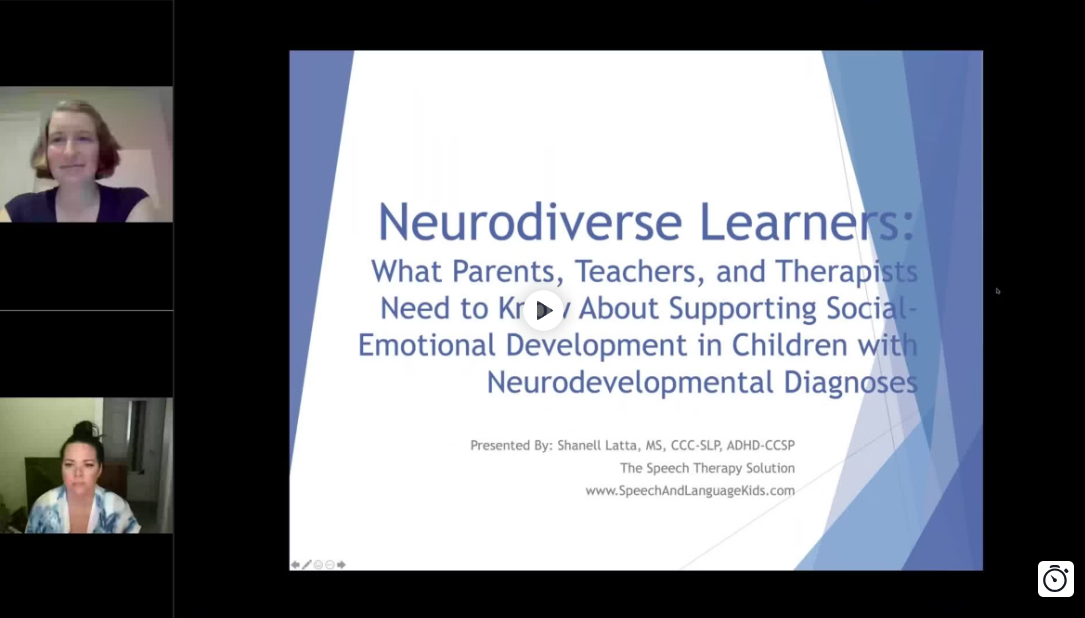
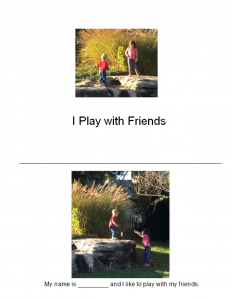
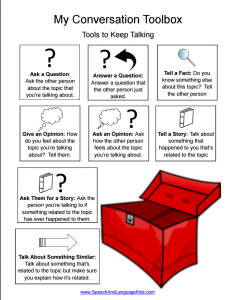
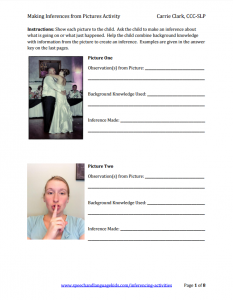





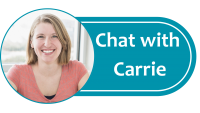

Hi Carrie I’m a Speechie from rural Western Australia and have just got a position developing a service for clients with disabilities in this region. Thank you so much for your podcasts. They are giving me a great foundation to deliver devices in therapy areas that are I have less experience in! Kind regards.
That’s wonderful! I’m so glad my information is of use to you! Please let me know if you have any questions!
Hi Carrie just wondering what materials or programmes you would recommend for social communication difficulties with the primary school child IE 5-8 year the above info was great for my older kids thanks mary
I have a few resources that may help you:
https://www.speechandlanguagekids.com/preschool-social-skills/
https://www.speechandlanguagekids.com/run-social-skills-group/
Hi Carrie, I just wanted to say a big thank you for this information. Our son has massive difficulties with social interaction brought on by his ASD. Yet we have been advised that he doesn’t require speech and language therapy.
The information you present here is essential to the parents who have to fight to get the best for our kids.
Knowledge is power – thank you very much.
You are so welcome! Keep in mind that there is a difference between not qualifying for therapy and not needing it. Unfortunately, our school systems are underfunded so many school districts or states will set cut-offs for who qualifies for services and who doesn’t. A child may miss that cut off and therefore not qualify for therapy through the schools, but may still benefit from therapy if you can afford to get services from a private company or therapist. I hate that our system works that way, but unfortunately, it does. I wish you all the best of luck in finding the help you need!!!
Hi! I am an itinerant autistic support teacher for kiddos in grades k-2. I have struggled for years to find an explicit, best practices format for teaching social skills in a group. Your detailed steps are exactly what I needed. how long would you suggest staying on each step ?
Your podcast also helped me stress to my staff the importance of social skills training. Thank you so much for this !